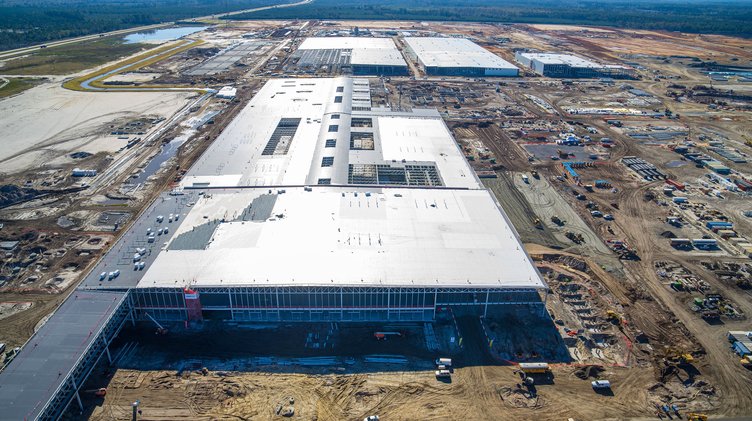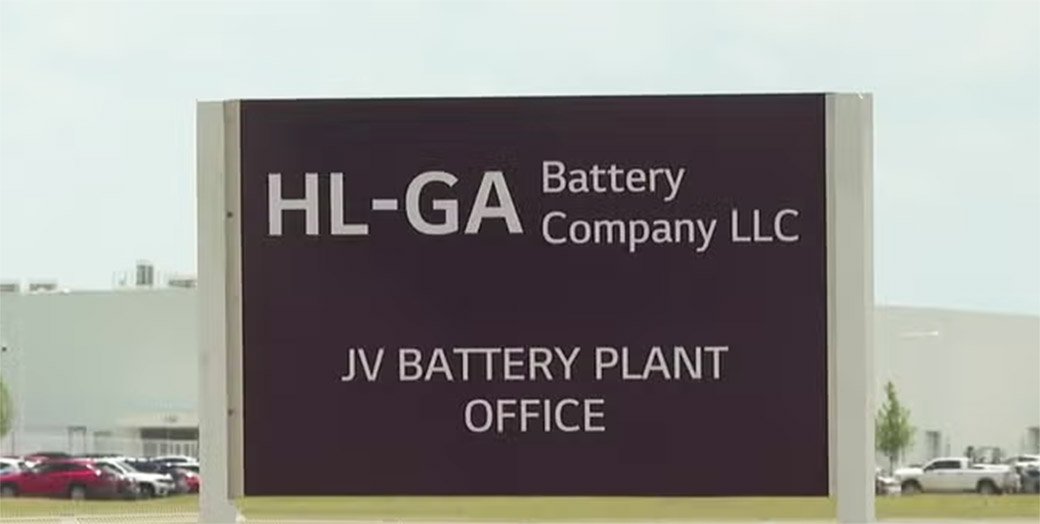

What we know about the federal raid at Hyundai’s Georgia megasite — and why it matters
Federal agents executed a criminal search warrant at the Hyundai Motor Group megasite west of Savannah, Georgia, detaining hundreds of workers and bringing construction at an adjacent battery plant to a sudden stop. The operation unfolded Thursday at the HL-GA Battery Company worksite — a joint venture tied to Hyundai and LG Energy Solution — and immediately raised questions about hiring practices, contractor oversight, and the ripple effects on one of the state’s marquee economic projects. (statesboroherald.com, Reuters)
Authorities have said little on the record, but Homeland Security Investigations (HSI) confirmed agents carried out a “judicially authorized enforcement operation” as part of an ongoing criminal probe into alleged unlawful employment practices and other federal crimes. Video from the scene captured an agent announcing a site-wide shutdown while the warrant was served. Federal and state law enforcement sealed off entrances; Georgia State Patrol assisted with traffic and aerial support, according to local reports. (Reuters, statesboroherald.com)
The number of people detained is still being clarified, but early tallies place it in the hundreds. A post from the Atlanta office of the Bureau of Alcohol, Tobacco, Firearms and Explosives (ATF) on X cited roughly 450 detained, while South Korean media — echoed by Seoul’s Foreign Ministry — said the total could be in that range, including an unspecified number of South Korean nationals. U.S. immigration officials have not publicly confirmed a final figure. (Reuters, AP News)
HL-GA Battery said it “paused construction” to cooperate with authorities; Hyundai also said it is working with law enforcement and remains committed to complying with labor and immigration rules. Importantly, Hyundai’s vehicle production at the Ellabell campus was not interrupted by the enforcement action, company representatives indicated. (statesboroherald.com, Reuters)
Why this site is such a big deal
The Ellabell complex — formally, Hyundai Motor Group Metaplant America (HMGMA) — is the centerpiece of Georgia’s recent manufacturing boom. Hyundai began producing electric vehicles at the sprawling facility within the past year and expects a rapid ramp-up. At full stride, the metaplant is designed to support up to 500,000 Hyundai, Kia and Genesis EVs and hybrids annually. The on-site HL-GA battery factory is meant to feed those assembly lines. Together, the campus and the joint battery venture represent multibillion-dollar investments and thousands of promised jobs for the coastal region. (AP News, Georgia DED, PR Newswire)
HL-GA itself is a 50-50 battery joint venture that Hyundai and LG Energy Solution announced at $4.3 billion, later expanded, with plans to begin battery production as early as 2025. The battery plant sits adjacent to Hyundai’s vehicle operation, knitting together supply and assembly on a single megasite. That co-location is precisely why Thursday’s stoppage — even if temporary — drew national attention: any prolonged disruption could ripple into the automaker’s EV rollout and supplier schedules. (Reuters, PR Newswire)
What investigators are likely probing
Officials have framed the operation around “unlawful employment practices.” In large, fast-moving construction projects with layers of contractors and subcontractors, investigators often look for forged documents, identity fraud, I-9 compliance failures, wage-and-hour violations, or the knowing employment of unauthorized workers. The warrant’s scope — halting all construction activity — suggests agents wanted to secure people, records, and devices on site before anything could be moved or altered. While those are standard tactics in complex workplace cases, the scale here is unusual. (Reuters)
It’s also happening in a broader climate of intensified immigration enforcement at worksites. Under the current federal agenda, ICE and HSI have stepped up audits and raids that target not just workers with questionable documents but also employers, labor brokers, and staffing networks accused of systemic violations. Agencies often pursue both criminal charges and civil penalties, and they sometimes reach corporate compliance agreements that require outside monitoring, training, or periodic reporting. For the Ellabell project, that could mean a painstaking review of the contractor tree — who hired whom, who verified what — before prosecutors decide on next steps. (Reuters)
The diplomatic and economic cross-currents
Because HL-GA and Hyundai are South Korean-backed projects, the fallout quickly spilled into diplomacy. Seoul publicly voiced “concern and regret,” saying the rights of its investors and citizens in the U.S. “must not be unjustly infringed” during law-enforcement actions. South Korea dispatched diplomats to assist affected nationals and to get clarity from Washington. That kind of government-to-government engagement is common when large numbers of foreign workers are swept up in U.S. operations, and it underscores how economic alliances can get tested by domestic enforcement priorities. (AP News)
For Georgia, the project is not just another factory. State leaders have touted Hyundai’s megasite — plus the associated battery and supplier facilities — as the largest economic development effort in state history. The promise of thousands of jobs and a durable EV supply chain was a political and economic win. A high-profile raid, therefore, isn’t just a legal story; it’s a stress test of how Georgia’s marquee projects handle compliance and oversight at scale. (AP News)
What happens next
Expect a slow, document-heavy process. After a raid like this, HSI typically combs through employment records, vendor contracts, site-access logs, and digital communications. Individuals detained may be released, placed in immigration proceedings, or — if prosecutors bring charges — held pending court. Employers and contracting firms could face fines, debarment from federal contracts, or criminal exposure if investigators find knowing violations. HL-GA has already said construction is paused to facilitate the investigation; any restart will likely be accompanied by tighter gate controls, re-verification of workers’ credentials, and stricter subcontractor reporting. (statesboroherald.com)
Hyundai’s assembly plant remains in operation, which limits near-term production risk. But the battery factory is strategically important: it’s meant to localize battery supply, underpinning eligibility for federal EV incentives and insulating Hyundai from logistics shocks. If the battery project’s pause stretches, Hyundai can still source packs elsewhere for a time, but that’s costlier and complicates long-term planning. Investors will be watching for formal timelines from HL-GA and any regulatory agreements that spell out new compliance conditions. (Reuters)
What to watch
- Official numbers and charges: ICE/HSI have not released a definitive detainee count or a charging document. Those filings will clarify whether this is primarily an immigration-status case, a document-fraud case, or a broader conspiracy involving recruiters and subcontractors. (Reuters)
- Contractor accountability: The investigation’s center of gravity appears to be the battery-site construction workforce. Look for whether prime contractors face audits and whether the joint venture imposes new gatekeeping rules on staffing vendors. (statesboroherald.com)
- Diplomatic follow-through: South Korea’s outreach could accelerate information-sharing and consular access, but it won’t short-circuit the U.S. legal process. The tone between Washington and Seoul will matter if more detentions or raids follow. (AP News)
- Project timelines: Any revised schedule for HL-GA’s opening will be closely parsed by state officials and suppliers who have built around the metaplant’s ramp. (PR Newswire)
Bottom line
Thursday’s enforcement action was a dramatic collision of two powerful trends: America’s push to onshore clean-energy manufacturing, and a simultaneous hard line on workplace immigration violations. The Hyundai megasite is meant to anchor a next-generation EV ecosystem in the Southeast; the HL-GA battery plant is the keystone of that plan. If investigators ultimately conclude that parts of the project leaned on unauthorized labor or tolerated document fraud, we’ll likely see stiff penalties and a far more restrictive compliance regime going forward. If not, the raid will still send a message that on projects of this size, every badge, every subcontract, and every onboarding must withstand federal scrutiny. Either way, the lesson is the same: growth at this scale demands governance at the same scale. (Reuters, statesboroherald.com, PR Newswire)
Sources include on-the-ground local reporting and national wire services. Key details on the warrant and construction pause come from local coverage; detentions and diplomatic reaction from national outlets; and project background from state and company materials. (statesboroherald.com, Reuters, AP News, PR Newswire)
